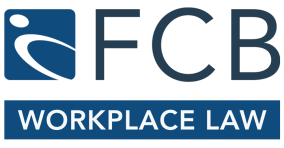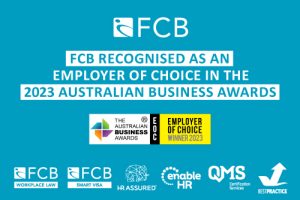Allity
FCB helps Allity overcome union opposition.
The background
Allity was formed in 2013 after purchasing Lend Lease’s Primelife aged-care business for $270m. Since then, it has conducted a number of further market acquisitions, including the purchase of 10 homes in South Australia for about $140m. It is now one of the largest for-profit aged care providers nationally and is regarded as a market leader.
As a result of its acquisitions, Allity had inherited a multitude of different and outdated enterprise agreements, which didn’t align with its operational models or workplace objectives. As such, it planned to embark on an extensive process of renegotiation with unions across 4 States.
Unfortunately, the industrial environment – especially in Victoria – was incredibly hostile to Allity’s industrial strategy, with unions actively opposing its proposed terms and conditions and prepared to engage in significant industrial disruption to further their claims. As a large, for-profit provider, backed by private equity investors, Allity’s business model may well represent the future for aged care service provision in Australia. However, it also represents a significant challenge for unions, who struggle with the private provider model.
Our brief
Allity engaged FCB to assist it with its bargaining strategy and processes nationally. Most significantly, Allity understood that it would need extra support in Victoria, in order to reach a workable agreement with employees, in the face of strong union opposition. Not only would Allity’s success or failure in Victoria affect its industrial obligations and its renegotiations in other States, it would also set a precedent for the broader aged care industry, with flow on consequences for other private providers in particular.
The approach
FCB supported Allity through the bargaining process from beginning to end, including:
- advising on Allity’s communication and consultation strategy, including preparing /reviewing key workforce and union communications throughout the bargaining, pre-vote and voting stages
- preparing the draft EA document, adapting/amending it throughout negotiations and testing it against compliance obligations and approval requirements
- conducting industry benchmarking analysis to support Allity’s wage offer decisions
- advising on Allity’s voting process strategy, including critical timeframes and mechanisms to maximise employee participation and minimise the risk of anticipated union challenges to the integrity of the process
- preparing for and responding to anticipated and threatened industrial action and disputes, union rallies and public union campaigns against Allity’s proposed EA, including by:
- appearing for Allity in proceedings before the FWC and obtaining significant variations to the unions’ proposed protected ballot orders, ensuring the unions were required to provide Allity with a longer than usual period of notice before commencing any industrial action;
- preparing responses to union notices of intended industrial action, highlighting and holding the unions to the longer than usual notice requirements;
- supporting and advising on Allity’s communication and PR strategy in relation to the proposed industrial action;
- providing ‘round the clock’ on call support to Allity managers during the ready access and voting periods, including assisting frontline and senior management to respond to:
- employee queries and concerns about the EA and about voting processes
- union campaigns providing misinformation and encouraging employees to ‘vote no’
- alleged employee misconduct in relation to the voting process
- planned and actual site visits by union representatives
- employee voting rates during the ballot period (including monitoring and supporting activities to encourage as many employees as possible to participate in the vote)
- after the successful yes vote, advising on and reviewing all documents required for lodgement and approval of the EA by the FWC, including communications with unions in response to their (expected) challenges to the inte
The outcome
Ultimately, the approach we took with Allity meant that:
- the unions were unable to take any lawful protected industrial action until after voting for the EA had commenced, significantly undermining the impact of their planned disruption campaign;
- Allity obtained a clear employee ‘yes’ vote, ensuring Allity’s sustainable wage and condition outcomes were achieved;
- union challenges to the integrity of the voting process were unsustainable and were negated before the application to FWC;
- bargaining was concluded and the EA approved prior to Christmas 2014, avoiding protracted bargaining and disputes carrying forward into 2015; and
- Allity has been able to leverage its success against the union position in Victoria in its subsequent bargaining in other States.
We are pleased to report that, with our assistance, Allity has now successfully concluded bargains in all four States, most with strong employee support despite various levels of union opposition.
Allity’s success – particularly in Victoria – now represents a leading bargaining outcome in the industry and is a testament to what can be achieved by providers in the aged care industry.


























